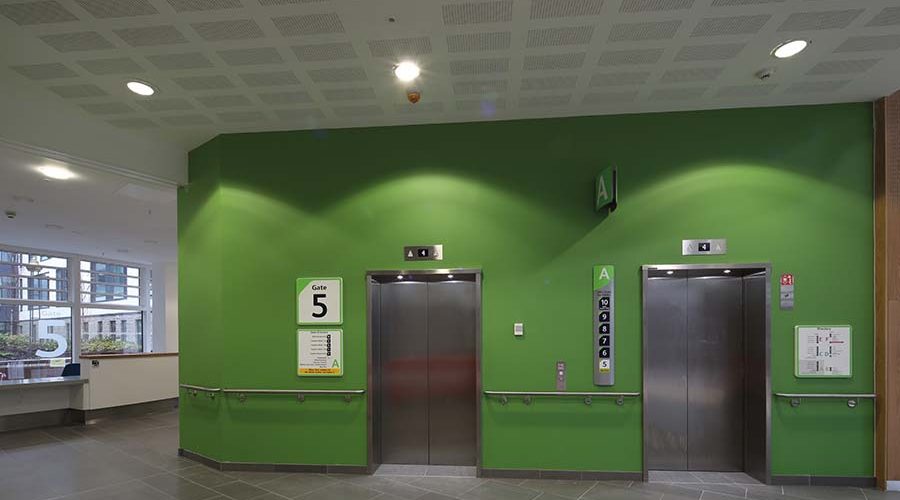Having a hygienic environment in healthcare is essential to look after patients with weakened immune systems and to stop the spread of disease within the hospital. Being thorough is key; if procedures are not carried out properly, it could worsen the health of a vulnerable patient. In addition, a National Audit Office report discovered that “the best estimate of treating healthcare infections remains at least £1bn”, whilst “each avoidable healthcare-associated infection costs the NHS £4300”.
Bagnalls
The safety and financial responsibilities for hygiene, therefore, have wide-reaching impacts and must be taken very seriously. Hospitals, doctor’s surgeries and care homes already utilise various cleaning methods to assure high levels of hygiene. Antibacterial cleaning solutions and mopping are regularly used methods – the NHS require that walls, floors and doors should be “visibly clean”. Whilst these processes are important; they may have limited effects without several other key considerations which are too often overlooked. Read on for top tips on ensuring that hygiene standards are met.
Handwashing facilities
Despite the emphasis on strict hygiene for surgeons and healthcare professionals, there is less attention paid to patient hand hygiene. Studies have shown that the transfer of micro-organisms between hands within hospitals is a major factor in the spread of disease. This can be combatted by the installation of hand sanitizers and other handwashing facilities throughout hospitals. Placing these at key locations throughout hospitals, such as the entrances, means everyone coming in will be encouraged to maintain good hygiene.
Informing patients and visitors
In addition to improving the handwashing facilities, it is important to improve education on the significance of hygiene and the importance of using these facilities. This can be done through posters or video messages – these need to convey information quickly and concisely in the fast-paced hospital environment. Placing these strategically next to washbasins and hand sanitizers is a great way to promote hand hygiene in these environments.
Is your building up-to-scratch?
Whilst regular cleaning is key to maintaining hygiene; this process can contribute to the wear and tear of the interior of a hospital or other healthcare centre. To help combat this, specialist wall coatings have been developed to resist rigorous scrubbing and even steam cleaning. As a representative of painting and decorating company Bagnalls commented, these products must be made and applied in a way which “can withstand daily cleaning for many years”. Given the stress these systems are placed under, this requires specialist paints specifically designed for such roles. Bagnalls recommends ensuring these products are being manufactured to high specifications which have been tested thoroughly. Equally important is checking that the company installing these is aware of the specific requirements of these products as well as the needs of your healthcare centre.
Interior design
Whilst the NHS constantly invests in finding the best ways to treat and combat infection, there are simple ways to reinforce these efforts through “hygiene coatings” and products which passively fight HCAIs (health care-associated infections). In addition to their resilient qualities, many of these wall coatings are also are inherently hygienic. These often include silver ion technology, which inhibits the spread of MRSA and E-Coli across the paint surface as well as killing bacteria. The nature of these surfaces also does not allow the growth of mould or fungus. As the benefits of these wall coatings become more widely known, hospitals around the country are widely adopting them to reduce risk.
Another popular option for the protection of walls and doors is protection panelling. These panels reduce bacteria through protecting walls from the dents and scratches which can be caused by moving trollies and equipment. Dents to a wall can greatly reduce hygiene levels, as they make the wall more difficult to clean and can harbour bacteria. In addition to this, many of these wall protection panels discourage the growth of bacteria: a representative of Yeoman Shield Wall and Door Protection explained that: “The materials PVCu is manufactured from are ‘rigid’ and, therefore, do not support the growth of bacteria or mould”. Installing either of these protection systems makes sure your hygiene efforts in the healthcare environment are supported by up-to-date interior design. These tips provide some great ways to support the hygiene processes already in place in your hospital or other healthcare centres, however, they do not replace the need for regular cleaning and attention to good hygiene practice.










